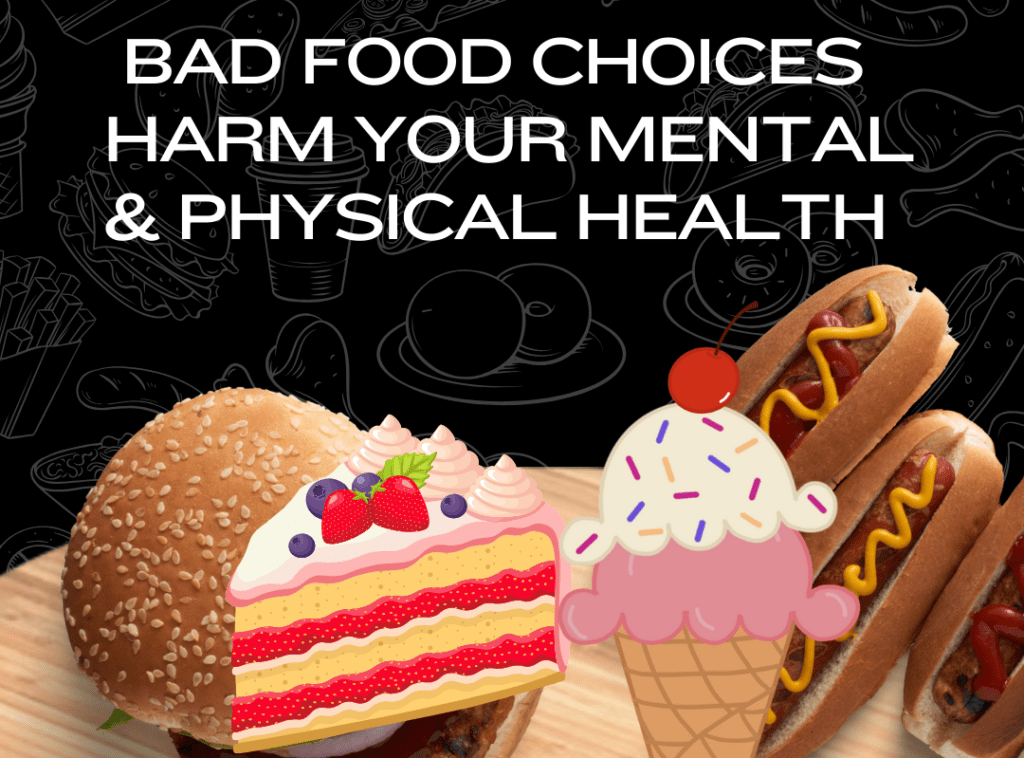
Introduction
Are our food choices contributing to a global crisis that affects everyone on this planet? Poor food choices have become a pressing issue, impacting not only our personal well-being but also the health of our planet. From highly processed junk foods to unsustainable farming practices, our dietary decisions are taking a toll on the world’s population in ways we can no longer ignore. Join us as we delve into the deep-rooted problems that arise from poor food choices and explore solutions to pave the path towards a healthier future.
The Impact Food Choices Have on Health
Unhealthy food choices not only contribute to obesity but also lead to a host of other health problems, including diabetes, cardiovascular diseases, and certain types of cancer. These deadly diseases are increasingly prevalent worldwide and can be directly linked to our dietary habits. Let’s take a closer look at the health implications caused by poor food choices:
- Obesity Epidemic:
- Ravaged by an abundance of fast food and sugary beverages, the world is facing an obesity crisis that affects both young and old.
- Poor food choices, often high in calories, unhealthy fats, and added sugars, contribute to weight gain and obesity.
- Obesity increases the risk of several chronic diseases, putting an unnecessary burden on healthcare systems globally.
- Diet-Related Diseases:
- Consuming processed and nutrient-poor foods leads to an inadequate intake of essential nutrients, depriving the body of vital elements for proper functioning.
- Such nutrient deficiencies can lead to a weakened immune system, impaired growth, and developmental issues, especially in children and adolescents.
- Additionally, a diet heavy in processed meats and low in fiber raises the risk of colon cancer.
- Mental Health Crisis:
- Poor food choices can have a detrimental effect on mental well-being.
- Diets high in sugar and unhealthy fats have been linked to an increased risk of depression, anxiety, and other mental health disorders.
- Proper nutrition, including a balanced intake of fruits, vegetables, whole grains, and lean proteins, promotes better mental health.
The Environmental Toll Of Food Choices
Our food choices not only impact our health but also play a significant role in the destruction of the environment. Unsustainable farming practices, deforestation, and excessive greenhouse gas emissions are just a few factors contributing to the environmental toll caused by poor food choices. Here are some key points to consider:
- Deforestation and Land Degradation:
- The demand for large-scale agriculture leads to deforestation, destroying vital habitats and exacerbating climate change.
- Deforestation contributes to the loss of biodiversity and increases carbon dioxide levels, further accelerating global warming.
- Water Scarcity:
- Industrial farming methods that rely heavily on irrigation deplete essential water resources.
- Large-scale animal agriculture, in particular, consumes enormous amounts of water, worsening water scarcity issues in many regions around the world.
- Greenhouse Gas Emissions:
- The production, processing, and transportation of food generate significant greenhouse gas emissions.
- Livestock farming, in particular, is a major contributor, responsible for large amounts of methane, a potent greenhouse gas.
The Economic Perspective of Food Choices
The consequences of poor food choices extend beyond personal health and environmental concerns. The economic impact is colossal and affects nations worldwide. Let’s explore these economic ramifications:
- Healthcare Costs:
- The rise of diet-related diseases places a tremendous financial burden on healthcare systems globally.
- The costs associated with obesity, diabetes, and heart disease treatment and management strain public health budgets and hinder economic growth.
- Loss of Productivity:
- Unhealthy eating habits also contribute to lost productivity in the workplace.
- Poor nutrition can lead to fatigue, decreased cognitive function, and absenteeism, resulting in reduced work efficiency.
- Food Waste:
- Poor food choices are also closely tied to excessive food waste.
- Consumers often buy more food than they need or let perishable items go bad, resulting in both economic and environmental losses.
Solutions to the Crisis
Addressing the issue of poor food choices is crucial for the well-being of our population and the planet. Here are some actionable solutions that can help tackle this crisis:
- Education and Awareness:
- Promote nutrition education to increase public awareness about the importance of a balanced diet and its impact on health.
- Encourage cooking classes, workshops, and interactive campaigns to empower individuals with the knowledge and skills to make better food choices.
- Sustainable Agriculture:
- Support farmers who adopt sustainable agricultural practices that prioritize soil health, water conservation, and biodiversity preservation.
- Advocate for government policies and incentives that promote environmentally friendly farming methods.
- Food Industry Responsibility:
- Encourage food companies to prioritize health and sustainability in their product development.
- Implement clearer labeling systems, highlighting nutritional information and environmental impact, enabling consumers to make informed decisions.
Why we make the food choices we do.
FAQs
Q1: How do poor food choices affect obesity rates? A1: Poor food choices, often high in calories, unhealthy fats, and added sugars, contribute to weight gain and obesity.
Q2: How can poor food choices impact mental health? A2: Diets high in sugar and unhealthy fats have been linked to an increased risk of depression, anxiety, and other mental health disorders.
Q3: What can individuals do to make better food choices? A3: Individuals can educate themselves about proper nutrition, choose whole and minimally processed foods, and prioritize fruits, vegetables, whole grains, and lean proteins.
Conclusion
The impact of poor food choices on the world’s population cannot be understated. It affects our physical health, strains the environment, and imposes a significant economic burden. However, by educating ourselves, supporting sustainable agriculture, and encouraging responsible practices within the food industry, we can pave the way to a healthier and more sustainable future. It’s time to make conscious choices that benefit both ourselves and the world we inhabit. Together, we can navigate away from this crisis and towards a brighter tomorrow.
Optimizing Your Physical Health Is Critically Important, Start It Right Now